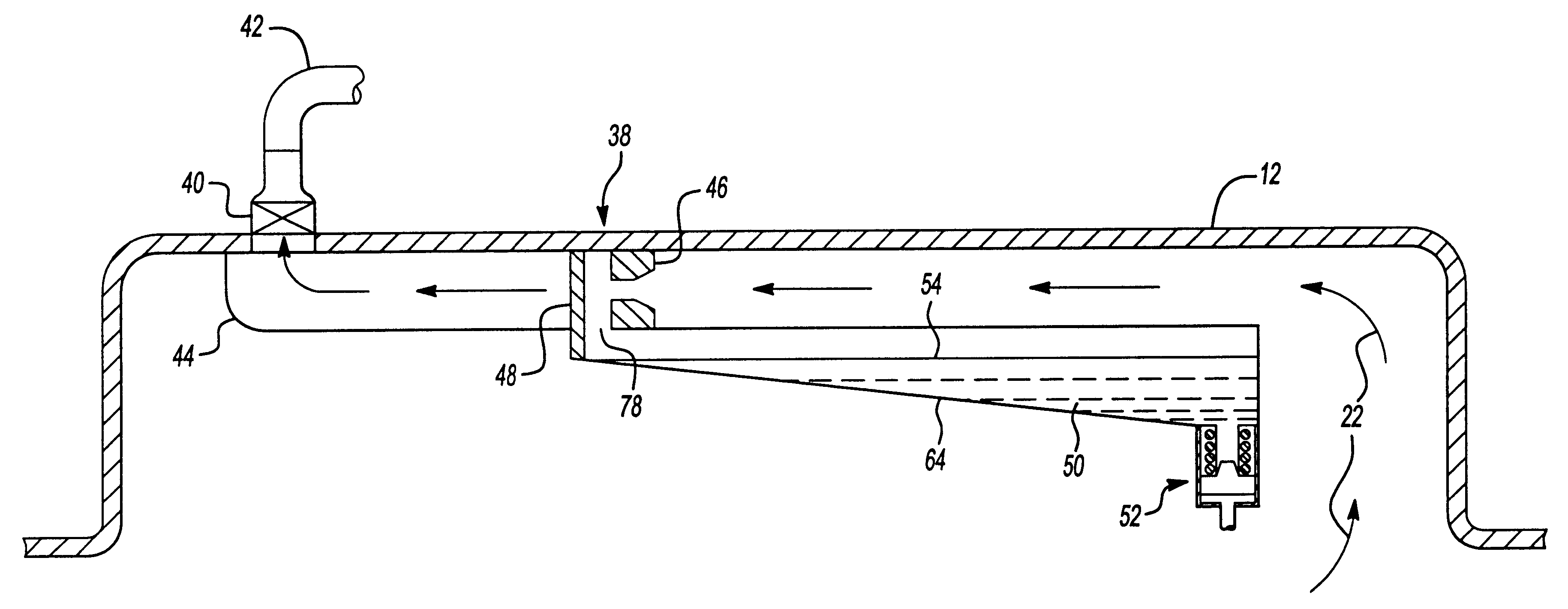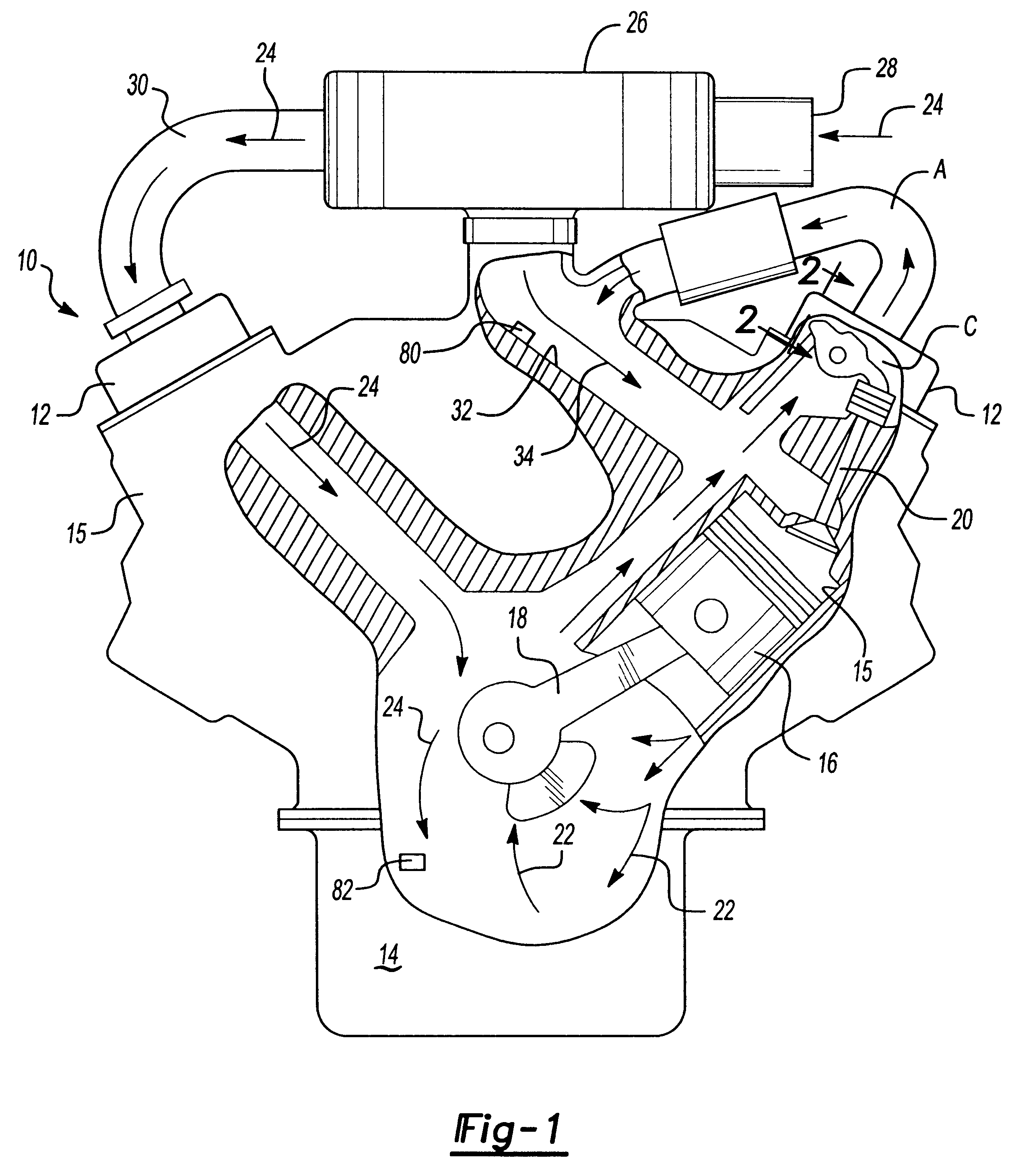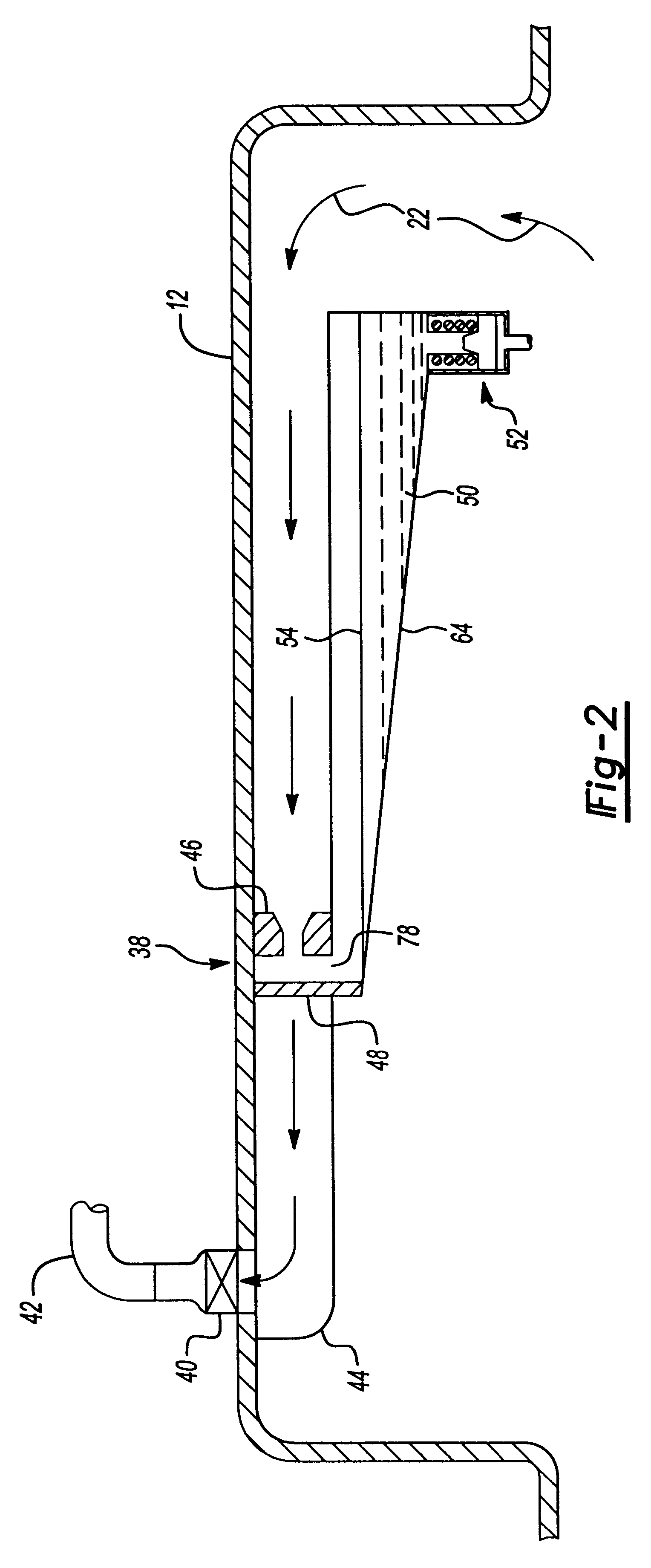Crankcase bypass system with oil scavenging device
a technology of bypass system and crankcase, which is applied in the direction of combustion air/fuel air treatment, machine/engine, fuel intake, etc., can solve the problems of ineffective valves, deficient standard pcv valves, and insufficient by-pass gas flow under the full range of engine performance,
- Summary
- Abstract
- Description
- Claims
- Application Information
AI Technical Summary
Problems solved by technology
Method used
Image
Examples
Embodiment Construction
Referring initially to FIG. 1, a schematic view of an internal combustion engine 10 is presented. Portions of the engine 10 are cut away to reveal one bank of cylinders 15 positioned under a rocker cover 12 to reveal the paths or movements of fresh air (arrows 24) and bypass gas flow stream (arrows 22) through various parts of the engine. An oil sump 14 is provided at the base of the engine 10, and a representative piston 16 reciprocates within the cylinder 15, the piston 16 being connected to a crankshaft connecting rod 18, as will be appreciated by those skilled in the art. Sets of intake and exhaust valves 20 admit air and release exhaust gases, respectively, into and out of the engine 10.
At the upper portion of the engine 10 is an air filter canister 26 adapted to admit fresh air 24 into an air intake nozzle 28. The fresh air 24 is filtered in the canister 26, and then travels through a hose or conduit 30 into one of the banks of cylinders 15. Although shown only schematically, ...
PUM
 Login to View More
Login to View More Abstract
Description
Claims
Application Information
 Login to View More
Login to View More - R&D
- Intellectual Property
- Life Sciences
- Materials
- Tech Scout
- Unparalleled Data Quality
- Higher Quality Content
- 60% Fewer Hallucinations
Browse by: Latest US Patents, China's latest patents, Technical Efficacy Thesaurus, Application Domain, Technology Topic, Popular Technical Reports.
© 2025 PatSnap. All rights reserved.Legal|Privacy policy|Modern Slavery Act Transparency Statement|Sitemap|About US| Contact US: help@patsnap.com



